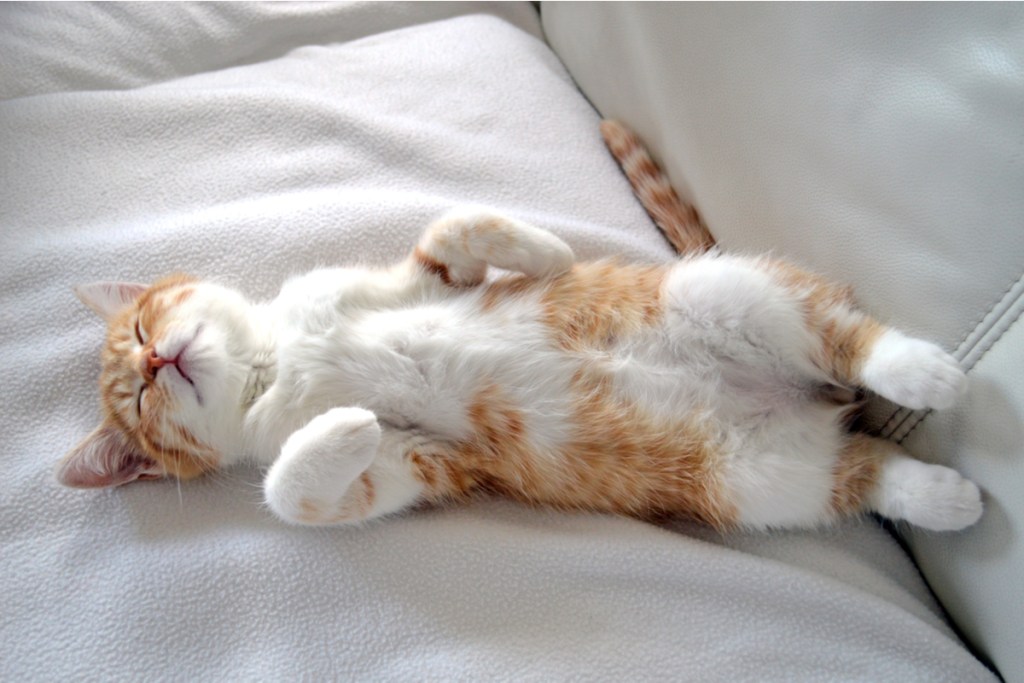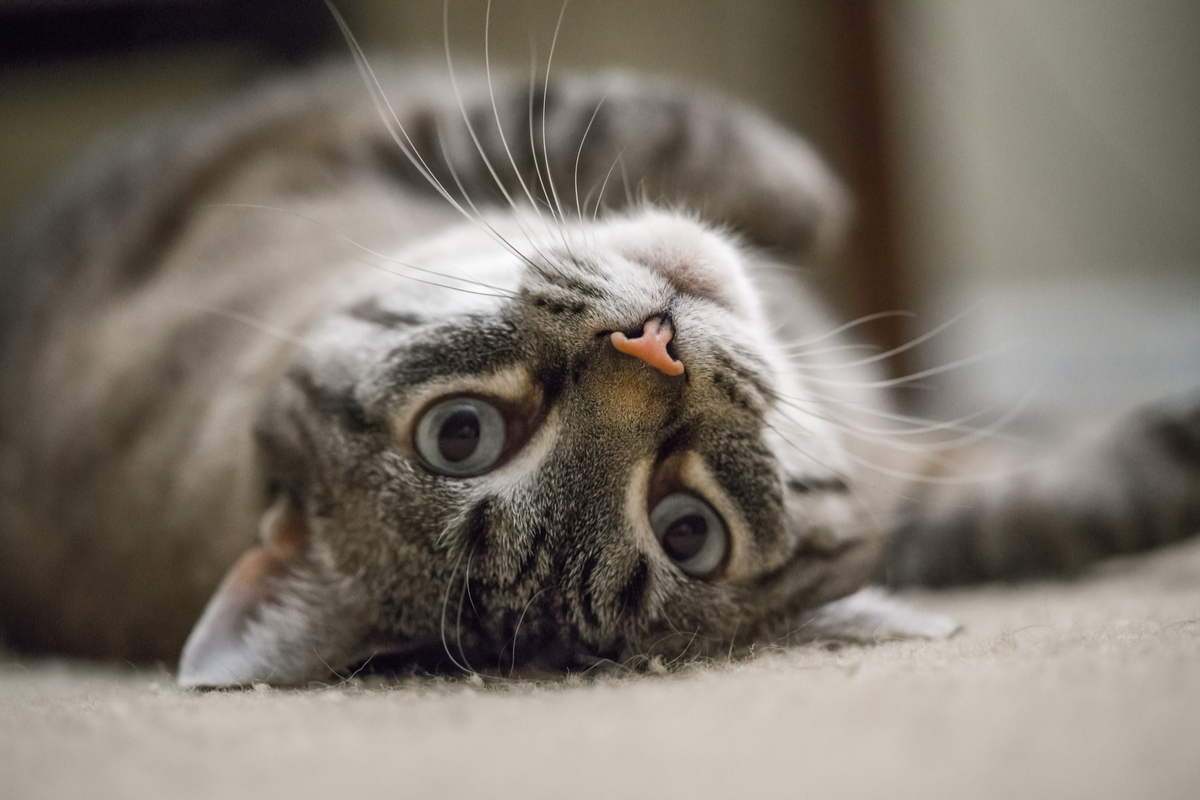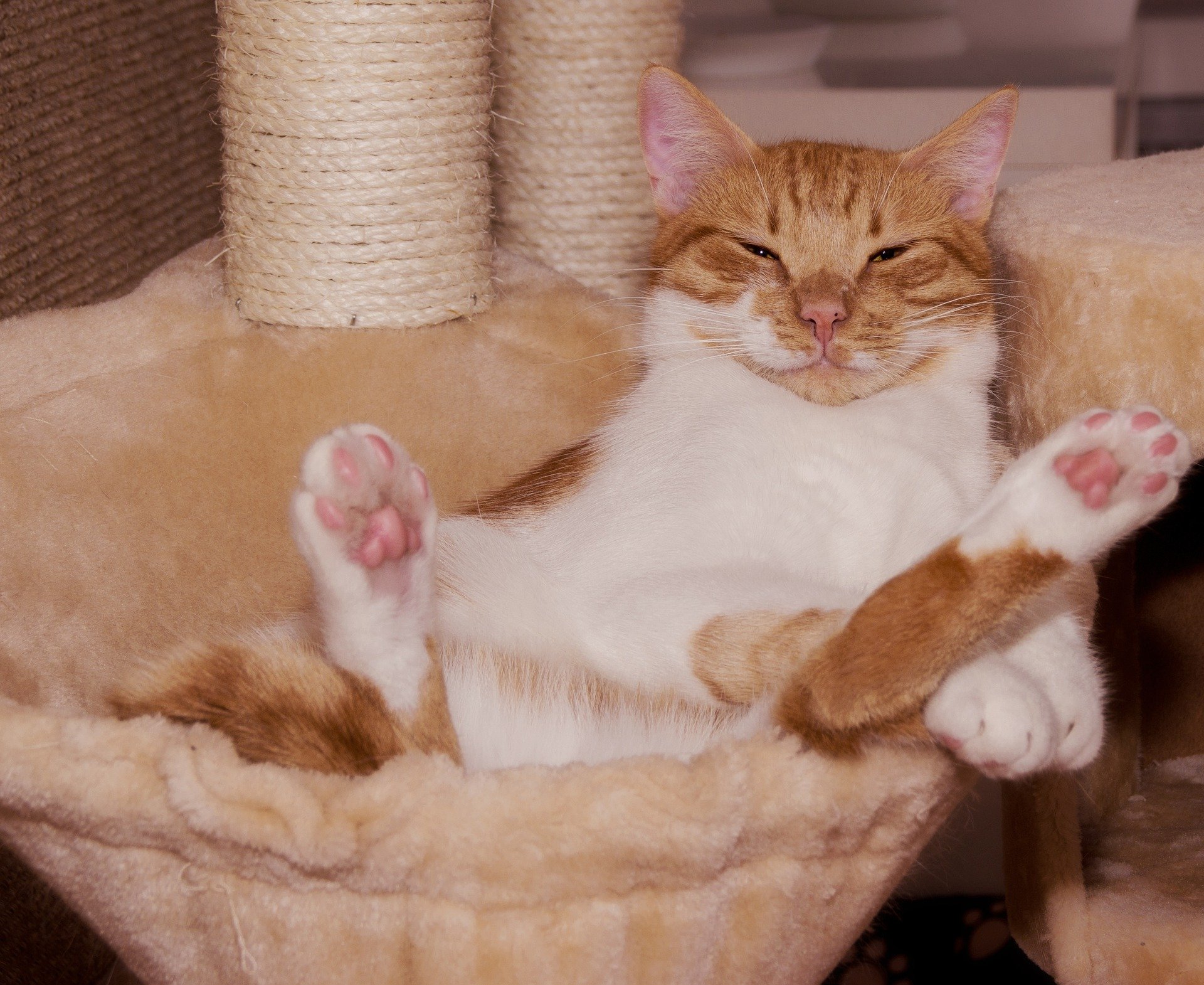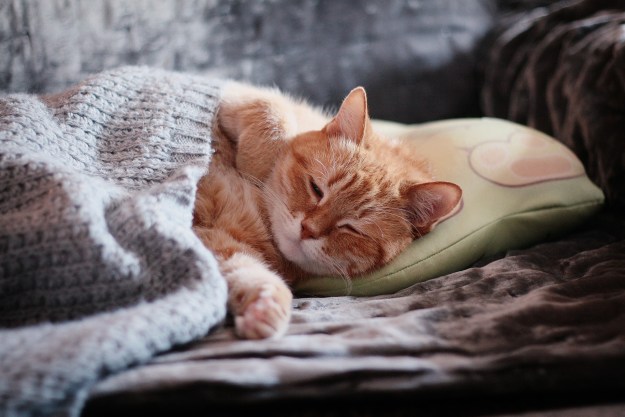Cats have all sorts of unique sleeping habits, and your cat might choose some highly unusual sleeping positions. However, you might be concerned if you see your favorite feline sleeping on their back and Googling “is it OK to find cat sleeping on back?”
In truth, it’s pretty common to see cats sleep on their backs. Your cat might stretch out on their back or flop up against a couch cushion, or they might go as far as to put all four paws up in the air and fully expose their belly. If you see your cat sleeping on their back, you should be flattered — this sleeping position conveys something important about how your cat feels about you.

Why cats sleep on their backs
So, why do cats sleep on their backs? There are several potential reasons behind this behavior. First, the position may just be comfortable for your cat. You might notice your fur baby stretches out and flips onto their back after their been lying on their side for a while. They might find sleeping on their back comfortable, and they might also realize that lying on their back means their stomach is exposed and ready to soak up the sun coming in from a nearby window.
If your cat knows that you react by patting them when they are on their back, they might assume this sleeping position more often to get your attention. Some cats will flop down next to you on the couch and then roll over, inviting you to rub their bellies. Be careful, though — this is also the opportune moment for a sneak attack where your cat might grab at or even nip at your hand. You’ll have to read your cat’s body language and pay attention to the cat’s preferences to decide if they really want their belly rubbed, or if they just want the satisfaction of knowing that you’re watching.
The significance of a cat sleeping on back
At first glance, you might think that a cat sleeping on their back is cute, but if your cat does this often when you’re around, it signifies something you should be aware of. Skip Googling “cat on back… concerning?”
A cat’s belly is one of the most vulnerable areas of their body. If a cat were attacked by a predator, they would instinctively protect their belly, since a predator could easily kill the cat if their belly were exposed. Although your cat is domesticated, those instincts are still present.
When your cat voluntarily rolls over to lie on their back, they’re exposing their belly. Your cat is willingly putting themself in a vulnerable position around you, and that shows that they trust you. Whether your cat lies on their back next to you on the couch or feels comfortable enough to lie like that while you walk through the room, they are demonstrating that they know you won’t harm them and they’re confident enough to expose that vulnerable belly to you.

What to do with a cat sleeping on their back
If your cat sleeps on their back, they are showing that they trust you. It’s up to you to maintain that trust. Refrain from starting your pet. Allow them to remain comfortable and stretched out, especially if they are in a deep sleep, though some kitties enjoy snuggling while they sleep.
You’ll need to observe your cat to determine which option they really prefer.
Your cat’s sleeping habits can give you insight into their health. A sudden change in your cat’s sleeping habits could indicate that they’re sick. While a cat who’s comfortable enough to sleep on their back is probably just fine, get to know your cat’s sleeping preferences so you’ll notice any changes that might occur in the future. If your cat suddenly starts sleeping more or less or switches positions or postures, something might be wrong. Stress and household changes can contribute to sleep changes, but it’s always good to start with a trip to your vet, just in case.
Editors' Recommendations
- Wondering why cats chirp? Fascinating reasons why your cat chirps at birds (and you)
- How to cat-proof your balcony before the unthinkable happens
- There’s a totally normal reason cats throw up after eating grass – here’s why
- Why doesn’t my cat meow? Here are 5 reasons why your feline friend is silent
- Is your cat hissing and growling a lot? These 5 tips will work wonders on your feline friend




